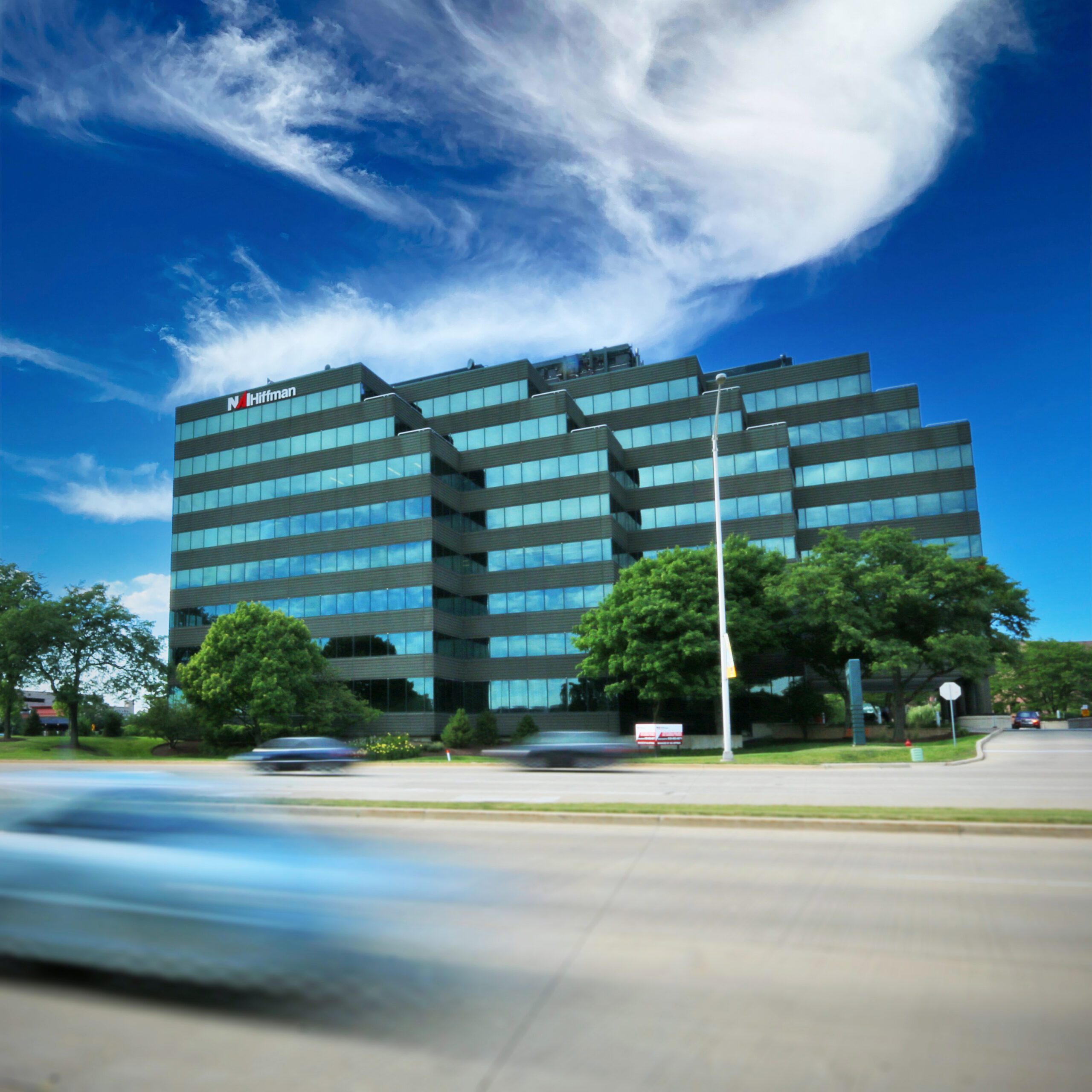July 2024
New Life for ‘Zombie Offices’?

While companies are continuing their flight to higher quality suburban office space in the evolving post-pandemic market, data suggests the region may be gradually figuring out how to repurpose its less desired buildings.
“Not every municipality wants to see an office building torn down for industrial,” Adler said. “It’s going to take time to rethink the master plan. Those conversations take a long time. Sometimes an owner can’t wait around long enough to figure it out.”
Though the suburbs ended the first half of the year with a daunting 24% office vacancy rate and a slowing leasing rate, a closer look shows signs of resiliency, according to a new report by Chicago-based commercial real estate firm Bradford Allen.
Any vacant space must be acknowledged in the data. But nearly 75% of that space is concentrated in about 20% of suburban properties, Bradford Allen found.
If these largely vacant buildings were removed from the tallies, the remaining 80% of properties that are largely being actively marketed would have an average vacancy rate of only 10%, according to Bradford Allen.
“Zombie offices” is a term sometimes applied to the roughly 17 million square feet of suburban office space that’s on the books but no longer being marketed.
Another way to look at Bradford Allen’s analysis is to compare it to a study of unemployment rates that subtracts those not actively looking for work.
What’s winning in today’s market is the highly amenitized and well maintained Class A office buildings, as opposed to the Class B and C properties that feature fewer of those characteristics, Bradford Allen Suburban Market Leader Dan Fernitz said.
“The flight to quality is still happening and brokers are focusing on that,” he said. “We do what we can to get tenants interested. People say, ‘I don’t want to be in that building because there’s nothing there.’ It’s very complex. Landlords are trying to navigate things as best they can.”
Jim Adler, executive vice president in the Offices Services Group of Oakbrook Terrace-based NAI Hiffman, said the softest part of the office market right now is the middle-sized buildings of about 150,000 square feet that may have had one or two tenants and often don’t have the space to easily add amenities.
In addition to changing market demands, the political will of the city or village in which a struggling building lies will play a big part in its fate, he added.
“Not every municipality wants to see an office building torn down for industrial,” Adler said. “It’s going to take time to rethink the master plan. Those conversations take a long time. Sometimes an owner can’t wait around long enough to figure it out.”
While it’s easier to just imagine vacant office buildings gone, as in Bradford Allen’s analysis, there’s steadily increasing examples of it happening in real life.
All 2.4 million square feet of Sears’ former headquarters in Hoffman Estates officially still existed during the first half of the year. But it soon will be demolished to make way for Dallas-based Compass Datacenters’ sprawling data center campus.
The village of Schaumburg plans to buy a nearly vacant 204,345-square-foot office building at 1000 Woodfield Road near Woodfield Mall this month to be its temporary village hall and then the site of a new purpose-built police station.
And the same village is awaiting a carefully honed proposal to convert a 45-year-old, five-story Class B office building of 103,546 square feet at 1699 Woodfield Road to apartments.
While not every suburb has yet contemplated significant changes to its commercial real estate landscape, Schaumburg recently enacted a three-year economic development strategic plan that includes parameters to assess office properties’ potential for repurposing.
“Schaumburg’s smart to do what they’re doing,” Fernitz said. “They need to get their arms around today and tomorrow and the long-term future.”
Adler said data centers and residential conversions are solutions for some, but not all. Data centers have to go where they can get the additional power they need, and large office floor spaces can be too unwieldy for apartments or condos. That’s why he believes older office buildings are more likely to be good candidates for residential.
While the pressure is on landlords to make their buildings desirable, the market is there for those who can meet it, Adler said. His firm is working with 10 companies relatively new to the Western suburbs that are looking for 450,000 square feet altogether.
But he’s confident there’s enough Class A stock in the suburbs to meet the needs of new and growing businesses that any new construction would be a long way off.
Wheels, Inc., a fleet management and mobility solutions firm with a location in Des Plaines, signed the largest suburban lease of the past two years last month, according to the new quarterly report by Jones Lang LaSalle. The company took more than 214,000 of the 360,000 square feet Zurich North America made available at its iconic 783,800-square-foot Schaumburg headquarters.
Between vacant buildings being repurposed to newer or renovated properties like Zurich North America and Bell Works Chicagoland in Hoffman Estates welcoming high-profile tenants, Adler believes the market is adjusting to what seemed a big problem just after the pandemic.
“I think the picture is more clear than it was a few years ago,” he said.
About NAI Hiffman:
NAI Hiffman is one of the largest independent commercial real estate services firms in the US, with a primary focus on metropolitan Chicago, and part of the NAI Global network. We provide institutional and private leasing, property management, tenant representation, capital markets, project services, research, and marketing services for owners and occupiers of commercial real estate. To meet our clients’ growing needs outside of our exclusive NAI Hiffman territory, we launched Hiffman National, our dedicated property solutions division, which provides property management, project services, and property accounting services across the country. NAI Hiffman | Hiffman National is an award winning company headquartered in suburban Chicago, with more than 250 employees strategically located throughout North America.
About Hiffman National:
Hiffman National is one of the US’s largest independent commercial real estate property management and advisory firms, providing institutional and private clients exceptional customized solutions for property management, facility management, advisory services, accounting, lease administration, lender services, project management, marketing, and research. The firm’s comprehensive property management platform and attentive approach to service contribute to successful life-long relationships and client satisfaction. As a nationally recognized Top Workplace, and perennial CRE award winner, Hiffman National is headquartered in suburban Chicago, with more than 275 employees nationally and an additional four hub locations and 15 satellite offices across North America.


